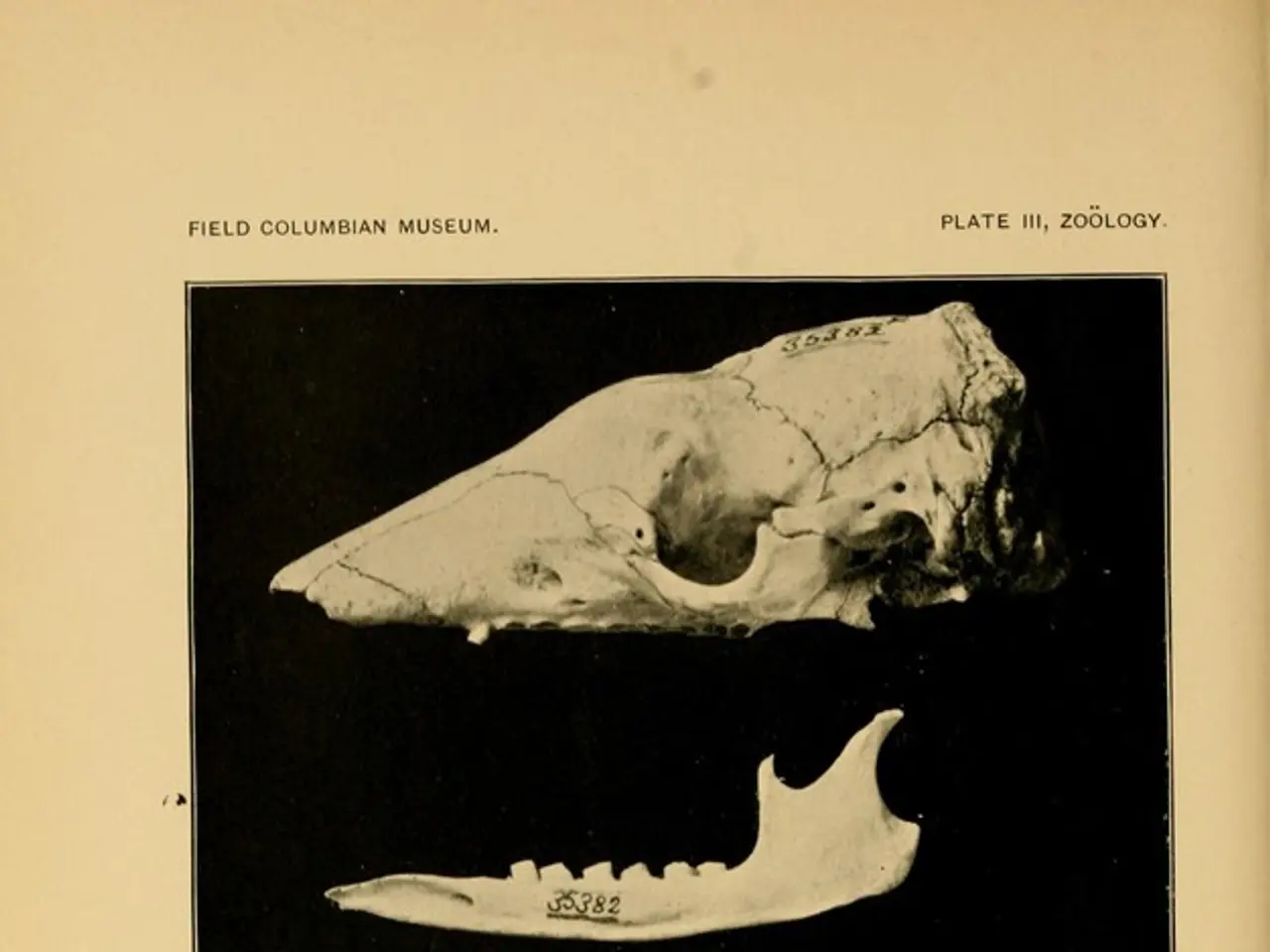Steps for managing Osteoporosis: Proper diet, supplement intake, and mental health considerations
Osteoporosis, a condition characterised by weakened bones and increased risk of fractures, can be managed effectively with the right self-care strategies. Here are key components that can help slow the progression, reduce fall and fracture risks, and maintain overall health for individuals with osteoporosis.
Engage in Weight-Bearing and Strength-Training Exercises
Activities such as walking, lifting weights, yoga, Pilates, and Tai Chi are essential for building and maintaining bone density. They also improve muscle strength, balance, and flexibility, which are crucial to reduce fall risk.
Ensure Adequate Intake of Calcium and Vitamin D
Calcium and vitamin D are essential nutrients for bone health. Adequate intake can be achieved through diet (e.g., dairy products, fortified foods, leafy greens) and supplementation as recommended by a healthcare provider.
Consume a Balanced Diet High in Lean Proteins, Fruits, and Vegetables
A balanced diet supports overall bone and general health. Protein, in particular, is crucial for bone structure and repair.
Address Modifiable Lifestyle Factors
Quitting smoking and limiting alcohol consumption are important for maintaining bone health and reducing fracture risk.
Implement Fall Prevention Measures
Removing clutter, installing handrails, using non-slip mats, and ensuring adequate lighting can help reduce the risk of falls at home and in daily life.
Use Assistive Devices When Needed
Assistive devices like canes or walkers can improve stability and confidence in mobility, especially in those with posture changes or muscle weakness.
Consider Physical and Occupational Therapy Consultations
Physical and occupational therapy consultations can help tailor exercise plans and teach safe movement techniques, enhancing safety and independence.
Monitor and Optimize Hormone Levels
Postmenopausal women may benefit from hormone replacement therapy or thyroid level assessments, which can influence bone metabolism.
Consider Complementary Approaches Cautiously
Collagen supplementation or herbal remedies may help slow the progression of osteoporosis, but they should be used under medical supervision and not as replacements for traditional medical treatments.
Consult a Doctor About Appropriate Exercise Options for Advanced Forms of Osteoporosis
Individuals with very advanced forms of osteoporosis may need to consult a doctor about appropriate exercise options.
Mental Health Interventions
Mental health interventions, such as staying physically active and seeking support from loved ones, psychotherapists, fitness classes, or osteoporosis support groups, can help alleviate anxiety and depression related to osteoporosis.
Supplements and Vitamin D Levels
People with a vitamin D deficiency may need prescription supplements to raise vitamin D levels appropriately. Sources of vitamin D include fatty fish, beef liver, cheese, eggs, yogurt, milk products, and some breakfast cereals. Sources of vitamin K2 include egg yolks, fermented dairy, meat, and fermented soy.
Maintaining a Moderate Body Weight
Maintaining a moderate body weight can lower the risk of bone fractures and bone loss.
These self-care strategies collectively aim to maintain or increase bone mass, enhance musculoskeletal strength, reduce falls and fractures, and promote overall well-being for individuals with osteoporosis. It's important to remember that everyone's situation is unique, so it's crucial to discuss these strategies with a healthcare provider to create a personalised plan.
- Consuming a balanced diet high in lean proteins, fruits, and vegetables, along with adequate calcium and vitamin D intake, can support overall bone health.
- Engaging in weight-bearing and strength-training exercises, such as walking, yoga, Pilates, and Tai Chi, can help build and maintain bone density, improve muscle strength, balance, and flexibility.
- Maintaining a moderate body weight can lower the risk of bone fractures and bone loss, contributing to overall health.
- Considering physical and occupational therapy consultations can help tailor exercise plans and teach safe movement techniques, enhancing safety and independence.
- Mental health interventions, such as staying physically active, seeking support, and managing stress, can help alleviate anxiety and depression related to osteoporosis.




